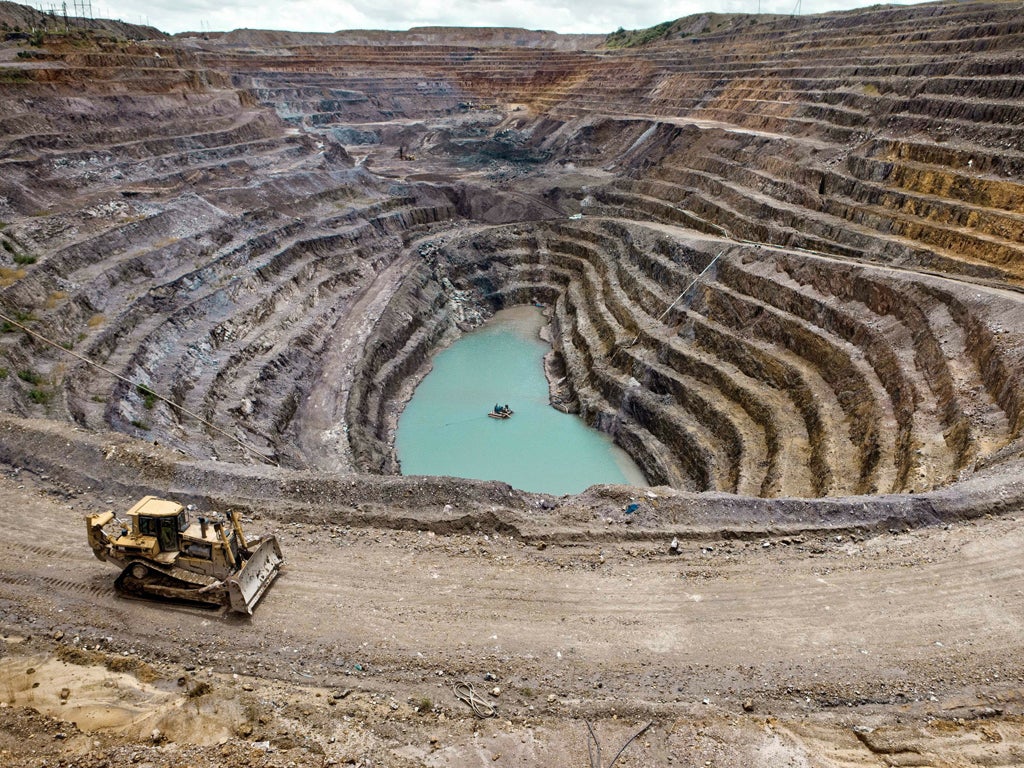Member of MPs' expenses watchdog urged to quit over Congo mining deal
Industrialist hits back at use of parliamentary privilege as cover for 'libel'

Your support helps us to tell the story
From reproductive rights to climate change to Big Tech, The Independent is on the ground when the story is developing. Whether it's investigating the financials of Elon Musk's pro-Trump PAC or producing our latest documentary, 'The A Word', which shines a light on the American women fighting for reproductive rights, we know how important it is to parse out the facts from the messaging.
At such a critical moment in US history, we need reporters on the ground. Your donation allows us to keep sending journalists to speak to both sides of the story.
The Independent is trusted by Americans across the entire political spectrum. And unlike many other quality news outlets, we choose not to lock Americans out of our reporting and analysis with paywalls. We believe quality journalism should be available to everyone, paid for by those who can afford it.
Your support makes all the difference.An MP has called for one of the board members of Parliament's expenses watchdog to stand down over his involvement in a mining deal in the Democratic Republic of Congo. Eric Joyce, the Labour MP for Falkirk and one of the highest claimants of House of Commons allowances, used parliamentary privilege to claim it was "absolutely astonishing" that Ken Olisa, a leading City figure, was a member of the Independent Parliamentary Standards Authority (IPSA), created after the MPs' expenses scandal.
Mr Olisa was an independent director of the Kazakh-owned mining firm Eurasian Natural Resources Corporation, a UK-listed company, when it was involved in the takeover of the Kolwezi copper mine in the DRC. He was ousted by the company's owners last year in a dispute about transparency, prompting Mr Olisa to accuse them of being "more Soviet than City". Mr Olisa continued to defend the Kolwezi deal after his sacking, however.
Mr Joyce, on the last sitting day before the Commons' Christmas break, alleged that the takeover was "very ropey and dodgy" because Joseph Kabila, the DRC President, had seized the Kolwezi mine from its former owners, First Quantum, in 2009, sold it on for a relatively cheap price to a "middleman", Dan Gertler, who then sold it to ENRC for $175m (£113m). Mr Joyce accused President Kabila of repeatedly using this "cunning ruse" of seizing national assets, selling them "to a mate for a pittance" who then makes "a few hundred million dollars' profit".
The MP told the Commons on 20 December that he found it "absolutely staggering" that Mr Olisa was a member of IPSA, which oversees members' expenses and upholds standards for allowances.
He added: "It is absolutely astonishing that that man should be on the board of IPSA, carrying out a function that we all agree is very important. I hope he may have the chance to reflect on whether his position on the board is appropriate."
Last Thursday, ENRC agreed a settlement of $1.25bn with First Quantum for ownership of the mine. There is no suggestion that Mr Olisa profited personally from the Kolwezi deal.
Mr Olisa hit back at Mr Joyce last night, accusing him of using the cloak of parliamentary privilege to libel him.
He insisted that extensive due diligence had been carried out by ENRC on the Kolwezi mining deal, adding: "My position has always been very clear and public: namely that there was nothing remotely dodgy about ENRC's role in the acquisition of the rights to extract copper in Kolwezi; and the litigation, arbitration and media campaigns run by First Quantum were intended wholly to drive up the price of their remaining DRC assets prior to their sale.
"Yesterday's announcement that First Quantum has sold its entire DRC portfolio... to ENRC at what seems a fair price merely reinforces my position and flies in the face of the conspiracy theorists who saw dodgy dealings where there were none."
Mr Olisa said he was "at a loss" over Mr Joyce's decision to connect ENRC with his service on IPSA. "My directorship of ENRC was one of a broad portfolio of interests, both commercial and charitable. Those interests and my highly public stance on maintaining the highest standards of corporate governance, give me a useful perspective when playing a role at IPSA – the primary purpose of which is to help restore public confidence in Parliament in the aftermath of the MPs' expenses scandal.
"It is paradoxical that while our Foreign Secretary is abroad extolling the virtues of parliamentary democracy, our own parliamentarians think nothing of abusing citizens' rights by libelling them from behind the wall of parliamentary privilege."
Members of the IPSA board are appointed following an interview process, before being recommended by the Speaker, John Bercow. Their appointments are submitted for approval by the Queen.
A IPSA spokesman said: "Our board members bring with them a breadth of experience – from a high court judge to an accountant; a former MP to a successful businessman. There is great value in that breadth of experience, and it is hard to reason that it is anything other than a strength. It is for those who raise the question to explain why there is a conflict with someone who was once a non-executive director of a UK listed mining firm serving on the board of a public authority overseeing MPs' expenses. We see no such conflict."
Mr Joyce was the first MP to cumulatively claim more than £1m in expenses over several years, and last year claimed £200,986 in allowances – the first time an MP has broken through the £200,000 barrier.
Join our commenting forum
Join thought-provoking conversations, follow other Independent readers and see their replies
Comments